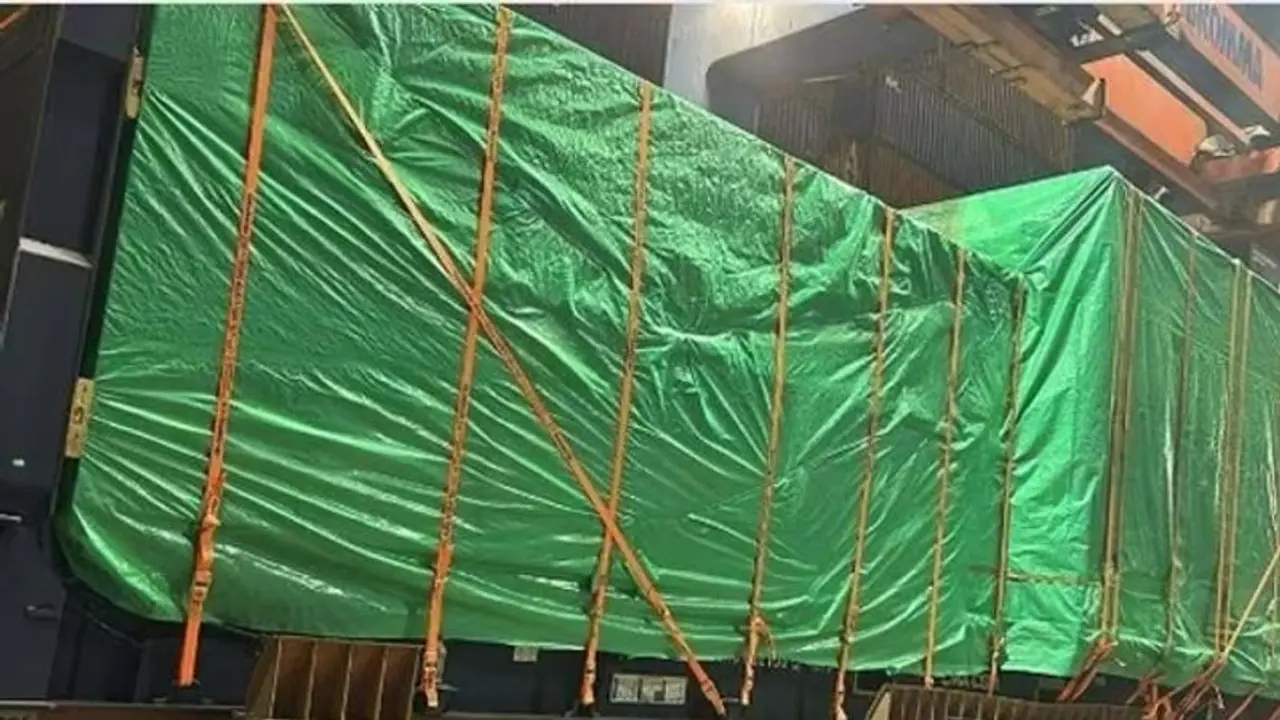The vessel underwent scrutiny at a port near Mumbai, with a team from the Defence Research and Development Organisation (DRDO) assessing the onboard equipment. Initial assessments hint at potential military applications of the equipment
Law enforcement agencies have conducted inspections on a vessel bound for Karachi, Pakistan, suspected of transporting equipment potentially applicable to nuclear and missile projects. While preliminary assessments suggest the equipment may have military applications, a comprehensive report from the agency is anticipated imminently.

Indian security agencies intercepted a cargo ship en route to Karachi, Pakistan, originating from China. The vessel in question, named CMA CGM Attila and registered under the flag of Malta, was halted at the bustling Nhava Sheva port in Mumbai for thorough inspection.
This intervention came in response to suspicions surrounding the nature of the consignment aboard the ship, with concerns raised about its potential dual-use capabilities that could be utilized in Pakistan's nuclear and ballistic missile programs.
The decision to inspect the cargo vessel was prompted by intelligence inputs received by customs officials, indicating the presence of items of interest. Upon conducting a meticulous examination, security officials stumbled upon a significant discovery: a Computer Numerical Control (CNC) machine. Further investigation revealed that this machine was originally manufactured by an Italian company, raising eyebrows about its intended purpose and destination.
To delve deeper into the matter, the Defence Research and Development Organisation (DRDO) was called upon to analyze the contents of the consignment. The findings of the DRDO lent credence to the initial suspicions, confirming that the equipment onboard the vessel could indeed be utilized by Pakistan in its nuclear programme.
Experts weighed in on the significance of the CNC machine, drawing parallels to its previous use by North Korea in similar contexts. It was emphasized that such machinery plays a crucial role in the production of critical components essential for missile development, thereby underlining the gravity of the situation.
The consignment, weighing a substantial 22,180 kilograms, was traced back to its origins. It was revealed that the shipment originated from Taiyuan Mining Import and Export Co Ltd and was intended for delivery to Cosmos Engineering in Pakistan. This revelation further fueled concerns about the potential ramifications of the intercepted cargo.
Importantly, CNC machines like the one intercepted have been subject to international arms control regulations since 1996, as part of the Wassenaar Arrangement. This multilateral agreement aims to prevent the proliferation of goods and technologies with both civilian and military applications. India's proactive measures in enforcing these regulations underscore its commitment to global non-proliferation efforts.
The interception of the cargo vessel was not merely a routine procedure but a strategic response to specific intelligence alerts. Indian defence authorities, acting swiftly upon receiving actionable intelligence, conducted a thorough inspection of the cargo to ascertain any potential threats. As a precautionary measure against the possible proliferation of sensitive technology, the consignment was seized pending further investigation. Documentation accompanying the consignment identified the consigner as "Shanghai JXE Global Logistics Co Ltd" and the consignee as "Pakistan Wings Pvt Ltd" of Sialkot
